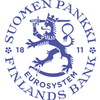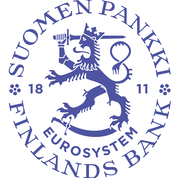Population ageing and rising public debt are setting a high bar for economic policymaking
15.6.2021 11:00:00 EEST | Suomen Pankki | Press release

The Finnish economy is making a swift recovery from the pandemic. The powerful monetary and fiscal policy measures have helped to prevent a significant and long-lasting shortfall in aggregate output. It has been averted in spite of the sharp decline in output experienced at the beginning of the pandemic and the repercussions still being felt by many businesses and households.
The long-term prospects for the Finnish economy are being weighed down by weak productivity growth compared with past decades, a low employment rate by Nordic standards, and an ageing population. These are factors that constrain the output of the economy and hence the debt-servicing capacity of the public sector.
The productivity slowdown is related to low levels of investment. ‘Finland's weak productivity growth suggests that we need to foster stronger incentives for innovation. One effective solution would be a wide and permanent tax relief for R&D. As for skills, the worrying decline in the average level of educational attainment of young adults is a trend that needs to be reversed,’ noted Bank of Finland Governor Olli Rehn.
The Finnish economy has fallen well behind its Nordic peers during the past fifteen years. ‘Finland can close the gap to the other Nordic countries by enacting economic reforms, and it is crucial that we improve our economy's ability to adapt to changes in the environment. There is still work to be done to shore up Finland's employment rate to a good Nordic level,’ summarised Governor Rehn.
The level of general government debt has grown rapidly during the pandemic, and it is to be expected that public debt will continue to grow even after the acute phase of the crisis. ‘As better cyclical conditions and economic growth are forecast for next year, fiscal policy ought to be steered in a direction that promotes the sustainability of the public finances. A return to central government spending limits without undue delay is key both for the sustainability of the public finances and for the credibility of the spending limits framework’, stated Governor Rehn.
Economic activity in the euro area is recovering as the pandemic recedes. Business and consumer confidence have improved markedly. Inflation has increased due to one-off and temporary factors and higher energy prices, but there are currently no signs of a rise in broader price pressures in the euro area. The COVID-19 situation continues to loom over the euro area outlook, and economic slack remains high.
The ECB Governing Council decided at its June 2021 meeting that it would continue to conduct net asset purchases under the pandemic emergency purchase programme at least until the end of March 2022 and, in any case, until it judges that the pandemic crisis phase is over. ‘Pandemic emergency purchases will be conducted in a flexible manner to help counteract the disinflationary effects of the pandemic and support growth. Accommodative financing conditions are a key element in supporting the recovery of the euro area economy,’ clarified Governor Rehn.
Keywords
Images
Links
About Suomen Pankki
The Bank of Finland is the national monetary authority and central bank of Finland. At the same time, it is also a part of the Eurosystem, which is responsible for monetary policy and other central bank tasks in the euro area and administers use of the world’s second largest currency – the euro.
Subscribe to releases from Suomen Pankki
Subscribe to all the latest releases from Suomen Pankki by registering your e-mail address below. You can unsubscribe at any time.
Latest releases from Suomen Pankki
Kontaktlös betalning blev vanligare i oktober–december 2025 jämfört med motsvarande tidpunkt året innan5.3.2026 10:00:00 EET | Pressmeddelande
Med kort betalades i oktober–december mer än under motsvarande period året innan. Framför allt gjordes under det sista kvartalet fler kontaktlösa betalningar än under motsvarande period 2024.
Lähimaksaminen oli yleisempää loka-joulukuussa 2025 kuin vastaavana ajankohtana edellisvuonna5.3.2026 10:00:00 EET | Tiedote
Korteilla maksettiin loka-joulukuussa enemmän kuin viime vuonna vastaavana ajanjaksona. Erityisesti lähimaksuja tehtiin vuoden viimeisellä neljänneksellä enemmän kuin vuonna 2024 samalla ajanjaksolla.
Contactless payments increased in October–December 2025 from a year earlier5.3.2026 10:00:00 EET | Press release
Cards payments in October–December grew year-on-year. In particular, more contactless payments were made in the fourth quarter than in same period in 2024.
Hushållens utestående konsumtionskrediter över 28 miljarder euro4.3.2026 10:00:00 EET | Pressmeddelande
Hushållens totala utestående konsumtionskrediter uppgick vid utgången av 2025 till 28,2 miljarder euro och årsökningen har mattats av till 0,1 %. Av hushållens totala utestående konsumtionskrediter bestod ungefär hälften av konsumtionskrediter utan säkerhet (exkl. fordonslån) och deras årsökning var 1,5 %.
Kotitalouksien kulutusluottokanta yli 28 mrd. euroa4.3.2026 10:00:00 EET | Tiedote
Kotitalouksien kokonaiskulutusluottokanta oli vuoden 2025 lopussa 28,2 mrd. euroa ja sen vuosikasvuvauhti oli hidastunut 0,1 prosenttiin. Kotitalouksien kokonaiskulutusluottokannasta noin puolet oli vakuudettomia kulutusluottoja (pl. ajoneuvolainat), ja niiden vuosikasvuvauhti oli 1,5 %.
In our pressroom you can read all our latest releases, find our press contacts, images, documents and other relevant information about us.
Visit our pressroom

